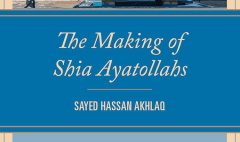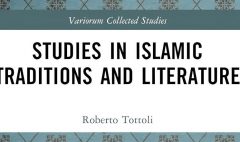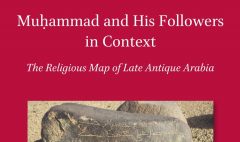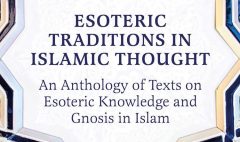Religious Minorities in Christian, Jewish and Muslim Law (5th – 15th centuries)
August 15, 2017 2023-10-08 8:45Religious Minorities in Christian, Jewish and Muslim Law (5th – 15th centuries)
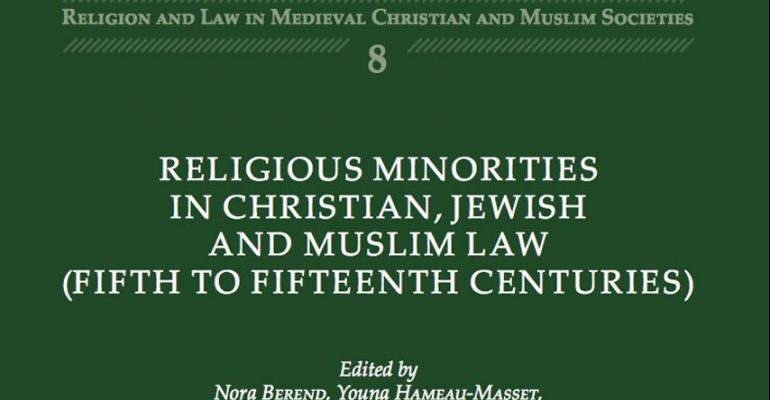
Religious Minorities in Christian, Jewish and Muslim Law (5th – 15th centuries)
Volume 8 of Religion and Law in Medieval Christian and Muslim Societies
Editors: Nora Berend, Youna Hameau-Masset, Capucine Nemo-Pekelman and John Victor Tolan
Publisher: Brepols Publishers (May 23, 2017)
Book series: Religion and law in Medieval Christian and Muslim Societies
The fruit of a sustained and close collaboration between historians, linguists and jurists working on the Christian, Muslim and Jewish societies of the Middle Ages, this book explores the theme of religious coexistence (and the problems it poses) from a resolutely comparative perspective. The authors concentrate on a key aspect of this coexistence: the legal status attributed to Jews and Muslims in Christendom and to dhimmīs in Islamic lands.
What are the similarities and differences, from the point of view of the law, between the indigenous religious minority and the foreigner?
What specific treatments and procedures in the courtroom were reserved for plaintiffs, defendants or witnesses belonging to religious minorities?
What role did the law play in the segregation of religious groups?
In limiting, combating, or on the contrary justifying violence against them?
Through these questions, and through the innovative comparative method applied to them, this book offers a fresh new synthesis to these questions and a spur to new research.
Table of Contents
- Introduction
- Part I. The Juridical Framework for Multiconfessional Societes in The Middle Ages
– The Relative Authorities of Text and Tradition in Medieval Jewish Jurisprudence: Geonic Exceptionalism in its Islamic Context, Talya Fishman
– The Legal Regulation of Minorities in Pre-modern Islamic Law, Anver M. Emon
– Western Legal Collections in the Twelfth and Thirteenth Centuries, Ken Pennington
– Scripture, Legal Interpretation, and Social Praxis in the Islamic Tradition: The Cases of Polygamy and Slavery, Jonathan Brown
- Part II. Comparative Studies
- Section I, Rights of residence
– Les conditions de la résidence du ḏimmī : entre règles absolues et relatives, Ahmed Oulddali
– Les ḏimmī-s et leurs lieux de culte en occident musulman : églises et synagogues en droit musulman (point de vue mālikite), Farid Bouchiba
– La ğizya dans la « loi divine » selon le commentaire coranique d’al-Qurṭubī (m. 671/1272), Géraldine Jenvrin
– Muslims, Jews, and the Question of Municipal Membership in Twelfth- to Fifteenth-Century Portugal, Anna Matheson
– Jewish Citizens versus Jewish Foreigners: The Legal Status of a Minority within the Minority in Medieval Catalonia, Nadezda Koryakina
– Les murs de la foi: les frontières identitaires dans les quartiers musulmans et juifs de la Castille médiévale, Marisa Bueno Sánchez
- Section II, Distinguishing Minorities: Segregation, Violence, Protection
– Segregatory Legislation and Jewish Religious Influence on Christians in the Thirteenth Century, Paola Tartakoff
– Legal Responses to Crusade Violence against Jews, Jessie Sherwood
– Minority Dress Codes and the Law: A Jewish-Christian Comparison, Elisheva Baumgarten
– Prohibiting Sexual Relations across Religious Boundaries in Fifteenth-Century Portugal: Severity and Pragmatism in Legal Theory and Practice, Francois Soyer
– Protection des chrétiens en terre d’Islam et discussion entre papes et souverains musulmans : le cas singulier des mercenaires du Maroc, Clara Maillard
- Section III, Tribunals and Trials
– Muslim Involvement in Non-Muslim Political Affairs in the Early Islamic Period, Uriel Simonsohn
– Jewish Business Contracts from Late Medieval Austria as Crossroads of Law and Business Practice, Martha Keil
– The Treatment of Minorities in the Legal System of the Kingdom of Jerusalem, Adam M. Bishop
– The Women of the Trent Trial (1475-1478), Aleida Paudice
– La yajuz li-hukm al-muslimin an yahkum bayna- huma: Ibn Rushd al-Jadd (Cordoba, d. 1126 ce) and the Restriction on Dhimmis Shopping for Islamic Judicial Forums in al-Andalus, Delfina Serrano
– Hebrew Documents and Justice: Forged Quitclaims from Medieval England, Judith Olszowy-Schlanger
Source: Brepols Online



